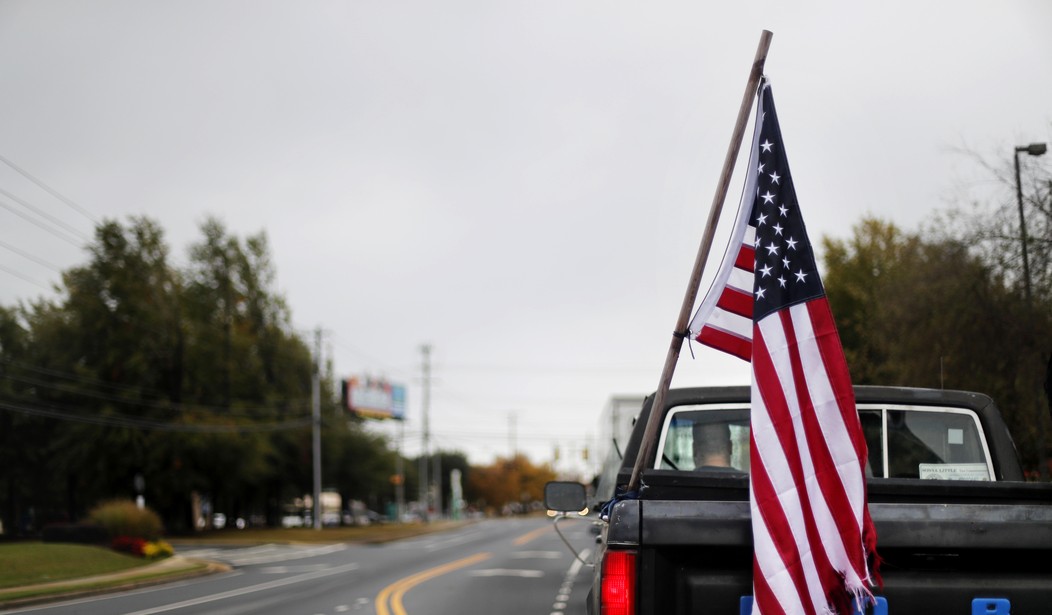As most Americans celebrated Independence Day by firing up their grills, gathering with family and friends, attending parades, and watching fireworks, the Associated Press was busy trying to convince them that “patriot” is a problematic word.
“In a polarized US, how to define a patriot increasingly depends on who’s being asked,” the headline read.
“Today, the word and its variants have morphed beyond the original meaning. It has become infused in political rhetoric and school curriculums, with varying definitions, while being appropriated by white nationalist groups,” readers are told.
The report goes on to highlight how “far-right and extremist groups” have used the term, citing data from the far-left Southern Poverty Law Center.
Far-right and extremist groups have branded themselves with American motifs and the term “patriot” since at least the early 20th century, when the second Ku Klux Klan became known for the slogan “100% Americanism,” said Mark Pitcavage, senior research fellow at the Anti-Defamation League’s Center on Extremism.
By the 1990s, so many antigovernment and militia groups were using the term to describe themselves that watchdog groups referred to it as the “ Patriot movement.”
That extremist wave, which included Oklahoma City bomber Timothy McVeigh, faded in the late 1990s and early 2000s. But many such groups resurfaced when Barack Obama became president, according to the Southern Poverty Law Center, which closely tracked the movement.
Since then, many right-wing groups have called themselves “patriots” as they’ve fought election processes, LGBTQ+ rights, vaccines, immigration, diversity programs in schools and more. Former President Donald Trump frequently refers to his supporters as “patriots.”
The term works as a branding tool because many Americans have a positive association with “patriot,” which hearkens back to the Revolutionary War soldiers who beat the odds to found the country, said Kurt Braddock, an American University professor and researcher at the Polarization and Extremism Research & Innovation Lab. (AP)
Recommended
The wire service got an earful about the piece from critics on social media:
AP can’t even take a break from dividing Americans on Independence Day.
— Shawn Quinn (@ShawnQuinn83) July 4, 2023
Pathetic.
No it hasn’t.
— StopWokeCulture 🇺🇸 (@MkayUokay) July 4, 2023
The term ‘patriot’ still means what it’s always meant…love of country. @AP should get out of the *news* business. They suck at it.
Just honestly rebrand to CommieTalkingPoints.
Divisiveness is not patriotic. Give it a rest for one day.
— Annie Day-now 👀 (@anniewe3) July 4, 2023
Happy Independence Day! 🇺🇸
AP desperately tries to malign the word "patriot" on #4thofJuly. Only thing it does is remind us how much they hate the U.S. #Patriots pic.twitter.com/KCzLiNnIW4
— Andy Martin (@Dollarlogic) July 4, 2023
What an incredibly patriotic article to post on Independence Day.
— David Giglio (@DavidGiglioCA) July 4, 2023
I can’t imagine why our youngest generations have such a low opinion of our great nation.
Hey, @AP if you don’t like America, you are free to leave. https://t.co/6DZtA6RvH4
Who the hell is in charge of the @AP these days? Making CCP and Pravda proud. My gosh. Can you picture the editorial meetings? So “what’s the most negative, divisive, victimhood thing we can write about today?” #journalismIsDead https://t.co/Wqey5MtNNK
— MBOZE (@MBOZE) July 4, 2023
The AP's "patriot" report comes as pride in America is near record lows, according to Gallup.

























Join the conversation as a VIP Member